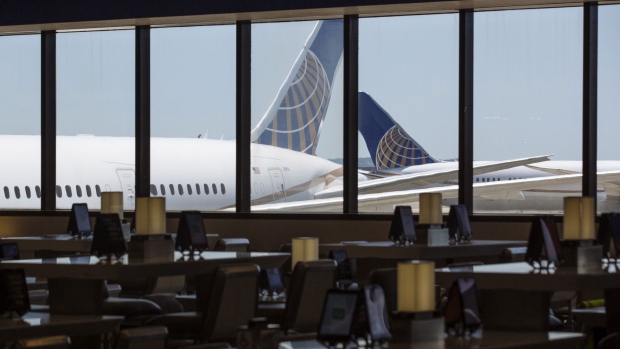Oct 15, 2020
United Air sinks as loss undermines vow to 'lead the rebound'
, Bloomberg News

United Airlines Holdings Inc. fell the most among U.S. airlines as a larger-than-expected loss undermined the company’s vow to outperform competitors once customers start flying again.
The carrier posted a third-quarter adjusted loss of US$8.16 a share, worse than the US$7.47 shortfall that was the average of analyst estimates. That weakened the company’s attempt to woo investors by using its third-quarter earnings statement Wednesday to say it would “lead the rebound” after an unprecedented drop in air travel.
“United believes their plan positions them to win the recovery,” Helane Becker, an analyst at Cowen & Co., said in a note to clients. “Given current demand and booking trends, we can’t poke holes in that thesis or strategy, but we note their hub structure appears to put them at a disadvantage without a rebound in international travel.”
Airlines still face a long, slow rebound as the coronavirus pandemic continues to hold domestic passenger numbers at about a third of last year’s levels -- with even deeper declines for international traffic. Since travel collapsed in March and April, U.S. carriers have slashed payrolls, parked jets, raised billions of dollars through debt deals and received US$25 billion in federal payroll support. Negotiations for additional government aid have stalled in Washington.
United fell 4.7 per cent to US$33.93 at 10:32 a.m. in New York, the biggest drop on a Standard & Poor’s index of big U.S. airlines. The shares tumbled 60 per cent this year though Wednesday, also the worst performance on the industry stock gauge.
‘Turn the Page’
The company pointed to its success on lowering daily cash burn to US$25 million in the third quarter from US$40 million in the previous three-month period. With greater cost flexibility, United will benefit when demand returns.
The Chicago-based airline has bolstered its cash stockpile by raising more than US$22 billion with debt offerings, stock sales and federal aid since March, giving it US$19.4 billion in liquidity as of Sept. 30. That trailed Delta Air Lines Inc.’s US$21.6 billion. American Airlines Group Inc., which reports third-quarter results Oct. 22, has raised around US$13 billion.
“We’re now able to turn the page away from just surviving to squarely focusing on leading the rebound,” United Chief Executive Officer Scott Kirby said Thursday on a conference call with investors and analysts.
While Kirby acknowledged that the next 12 to 15 months will be difficult for airlines, his tone represented a departure from the pessimistic views United used earlier in the crisis, given its larger exposure to international flights.
The company responded with deeper capacity cuts than American, Delta and Southwest Airlines Co., and has warned that sales would remain at only about half of pre-pandemic levels until a vaccine is available and widely distributed.
United’s third-quarter sales dropped 78 per cent to US$2.49 billion, in line with analyst estimates and comparable to Delta’s decline. United’s cargo revenue jumped 50 per cent, while passenger sales tumbled 84 per cent.





